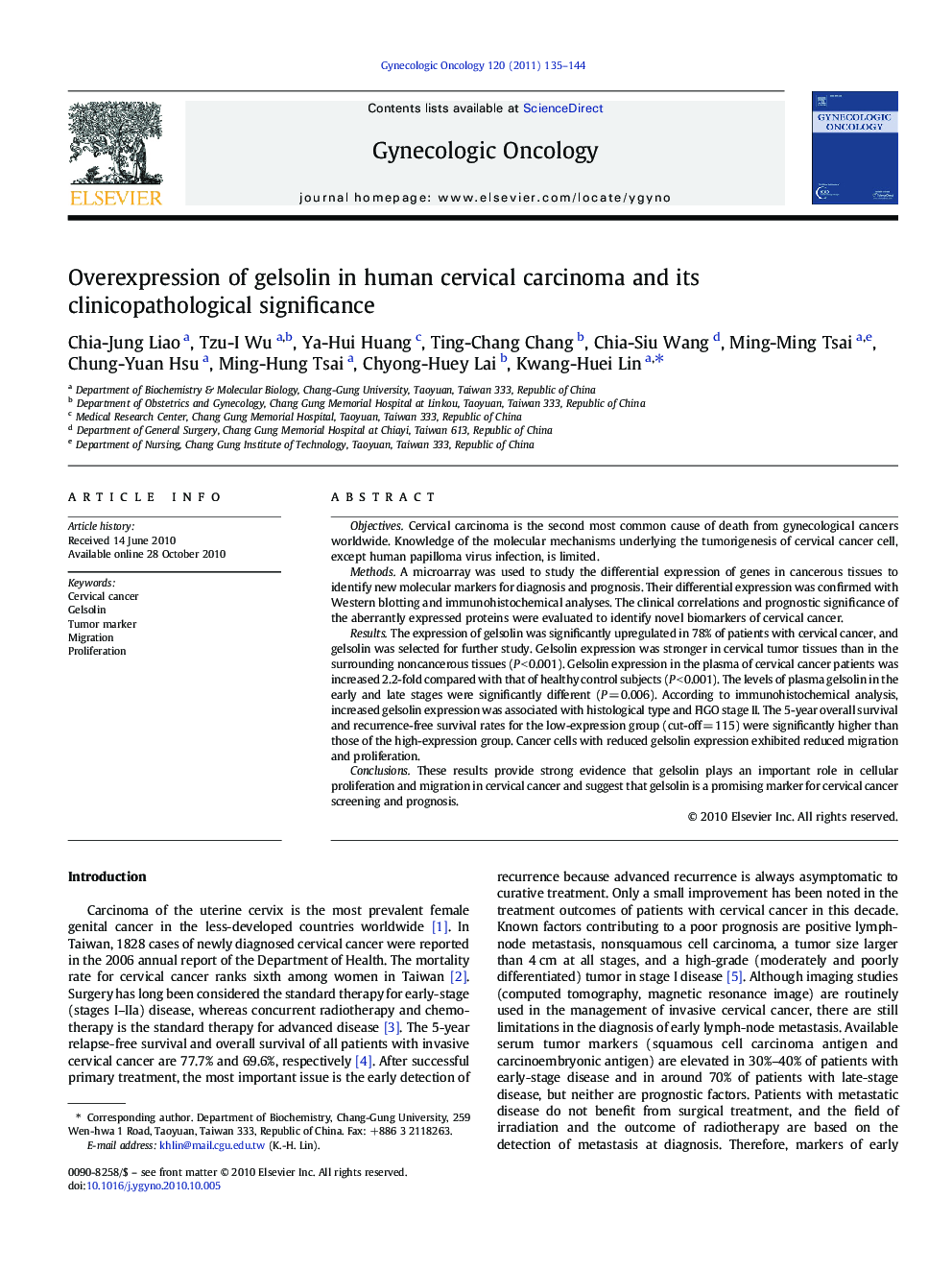| Article ID | Journal | Published Year | Pages | File Type |
|---|---|---|---|---|
| 3947193 | Gynecologic Oncology | 2011 | 10 Pages |
Objectives.Cervical carcinoma is the second most common cause of death from gynecological cancers worldwide. Knowledge of the molecular mechanisms underlying the tumorigenesis of cervical cancer cell, except human papilloma virus infection, is limited.Methods.A microarray was used to study the differential expression of genes in cancerous tissues to identify new molecular markers for diagnosis and prognosis. Their differential expression was confirmed with Western blotting and immunohistochemical analyses. The clinical correlations and prognostic significance of the aberrantly expressed proteins were evaluated to identify novel biomarkers of cervical cancer.Results.The expression of gelsolin was significantly upregulated in 78% of patients with cervical cancer, and gelsolin was selected for further study. Gelsolin expression was stronger in cervical tumor tissues than in the surrounding noncancerous tissues (P < 0.001). Gelsolin expression in the plasma of cervical cancer patients was increased 2.2-fold compared with that of healthy control subjects (P < 0.001). The levels of plasma gelsolin in the early and late stages were significantly different (P = 0.006). According to immunohistochemical analysis, increased gelsolin expression was associated with histological type and FIGO stage II. The 5-year overall survival and recurrence-free survival rates for the low-expression group (cut-off = 115) were significantly higher than those of the high-expression group. Cancer cells with reduced gelsolin expression exhibited reduced migration and proliferation.Conclusions.These results provide strong evidence that gelsolin plays an important role in cellular proliferation and migration in cervical cancer and suggest that gelsolin is a promising marker for cervical cancer screening and prognosis.
Research Highlights►Higher gelsolin levels are independent negative prognostic factors of recurrence-free survival. ►Gelsolin plays a pivotal role in the proliferation/migration of cervical cancer cells. ►Gelsolin is a promising marker for the detection and prognosis of cervical cancer.
